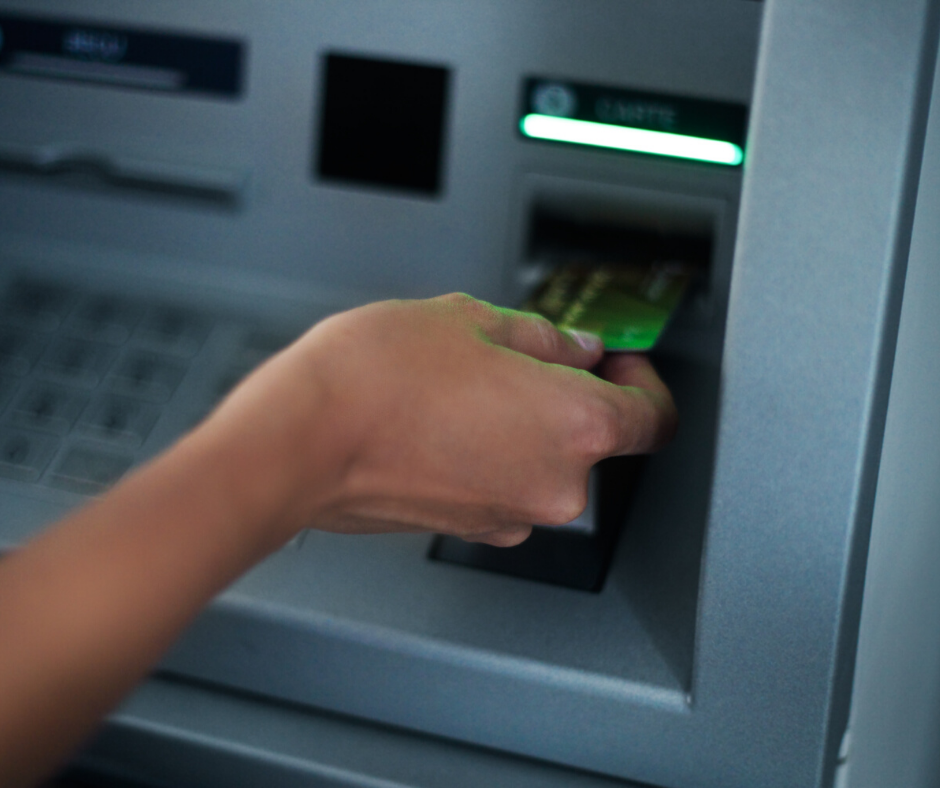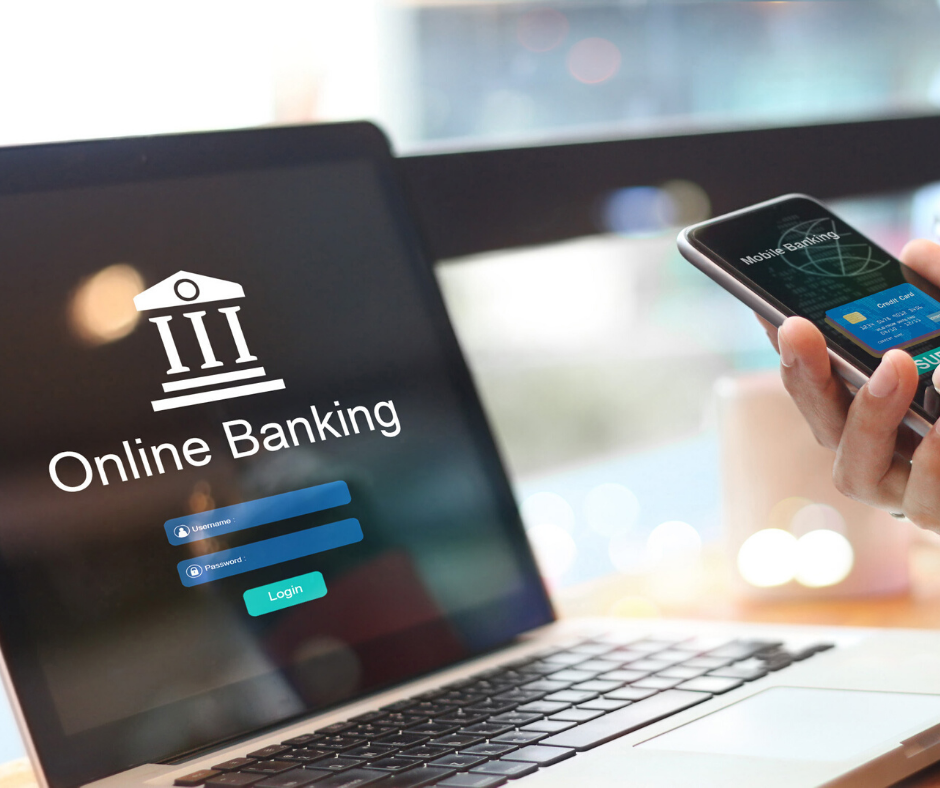This post may contain affiliate links. Read our disclosure here.

A great way you can take good care of your money and potentially make money is to choose the right kind of bank. Yesterday I shared ways to avoid bank fees, and the biggest part of that is by being at the right bank.
Today I’m going to compare online and traditional banks so that you can decide which bank is right for you. The truth is, it’s probably wisest to do a combination of both! And even if you’re not comfortable putting all your money in an online-only bank, even just having a savings account at an online bank might be a benefit to your finances.
Note: Regardless of what kind of bank you choose, you should make sure that the bank is FDIC insured. Any bank worth your while will insure accounts up to $250,000.
Comparing Online and Traditional Banks
The Pros of Traditional Banks
A traditional bank what you are driving past everyday in town. They have a building, real people behind the counter, and usually have ATM machines associated with them. There are a lot of pros to a traditional bank, including being able to visit the bank in person if you prefer face to face contact.
There’s also the matter of the ATMs. Most ATMs charge a small fee to withdraw money if you’re not a customer of the bank that is affiliated with the ATM. Having a local bank lets you avoid those fees if you need to regularly withdraw cash from an ATM.
Traditional banks can also be better than online banks because you have quicker access to your cash. Especially with a savings account, online banks may take 1-3 days to process a transfer into your checking account. If you have a local traditional bank, you can go there and immediately withdraw that money with no problems.
Another thing to consider is security. If you do all your banking in person, you have no need to worry about data breaches or security hacks. While those kinds of issues are not common, you don’t have to worry about that if you’re using a traditional bank.
It’s also usually easier to deposit money at a traditional bank. While online banks have found ways to make it easier to deposit checks, you’re mostly out of luck if you receive a large chunk of cash and don’t want to keep it in your wallet.

The Pros of Online Banks
Not surprisingly, online banks have grown significantly in popularity. What could be easier than doing your banking from your phone? There are also many pros to using an online bank as opposed to a traditional bank.
For one thing, because online banks don’t have to pay as much in overhead and staffing, they often have no fees and can offer a higher interest rate on savings accounts.
In terms of managing your finances and sticking to your budget, an online savings account in particular can help you manage your money better because it usually takes a few days to transfer the money to a checking account. Therefore, it keeps you from impulse purchases since you can’t use the money right away!
Another way to utilize online banking is to take advantage of special offers for opening new savings accounts. For example, sometimes there will be a $200 bonus for opening a new account with an online bank. You can simply transfer your savings from one online bank to another and take advantage of offers like that.
A great pro of using an online bank is that you can access your account anywhere at any time. If you travel frequently or often need to move money around, an online bank is a great tool.
Regarding security, even though there is always the risk of data breaches and security hacks, online banks know that is their biggest threat and so often have many measures in place to ensure your money is safe. As I said before, you should make sure any bank where you put your money is FDIC-insured.
Overall, it makes sense to at least use an online bank for secondary banking purposes like a savings account or maintaining finances from a side job.

What We Do: Create A Blend of Both
If you are curious what our family does, we do a blend of both. We have a local bank that we could drive to in a pinch. If I need to write a check or pay a bill this is where the money is coming from. We also have an online savings account (or two).
Our paychecks are set automatically to deposit money into a couple different accounts. Most goes to the local checking account for bills, but every pay period we have money direct deposited into savings accounts too! Most HR departments can handle this and may even have a way for you to set it up yourself online.
We use one savings account to save for bills that are yearly or every few months like our home insurance, property taxes, etc. We don’t have escrow on our mortgage (another way to save money) but it means we need to do a good job of always having the money to pay those expenses when they are due.
Then we have another online savings account that is our normal savings. I ONLY keep money in the checking account to pay bills, any extra gets moved to the online savings account. Most local bank checking accounts pay no interest (or basically nothing). The online savings account currently pays 5.3% interest! I can move money back if needed but the goal is to keep it there for emergencies or for big purchases that may come up.
The Best Online Banks
The following are banks with some of the best interest rates or very low fees. Remember, it might be worth it just to use one for a savings account!
SoFi – currently 4.3% interest for savings accounts and a $300 bonus for new accounts with a direct deposit.
Capital One – currently 4.1% interest for savings accounts, $0 minimum balance, $250 bonus for new checking accounts
UFB Direct – currently 2% interest on checking accounts and 4.57% on savings accounts, $0 minimum and no monthly maintenance fees
Lending Club Banking – currently 5.3% interest on savings accounts with a $250 deposit monthly, 0$ minimum balance, no account fees
Do you use online or traditional banks, or a combination? Let us know in the comments!



